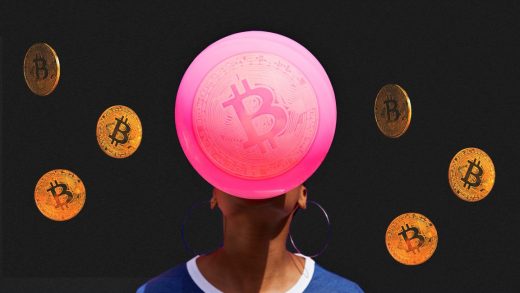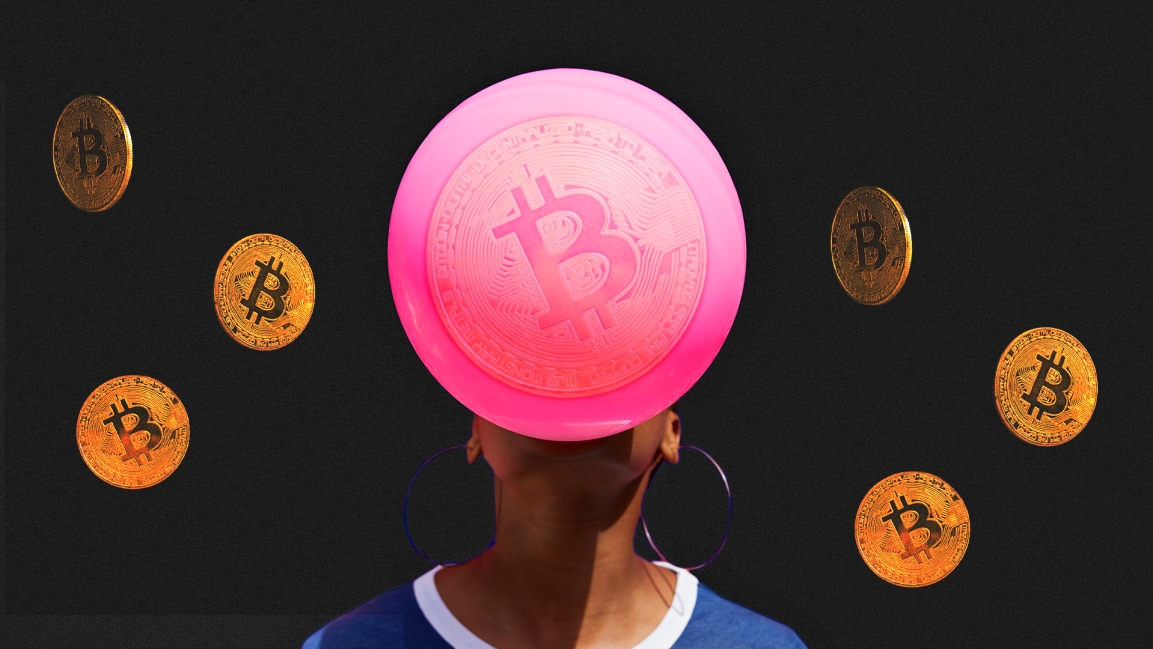Inflation is up, so why isn’t the price of Bitcoin?
In early May, MicroStrategy CEO Michael Saylor took to Twitter to, once again, proclaim his trust in Bitcoin. “Bitcoin is the best hedge against inflation,” he tweeted, citing evidence that Bitcoin’s price has risen over time since his own company bought a billion dollar stake in the digital currency in August 2020.
But Saylor’s words have rung hollow in the weeks since then, as Bitcoin has crashed alongside so many other facets of the U.S. economy.
For years, cryptocurrency advocates have touted Bitcoin as a hedge against the inflating value of fiat currencies. Historically, Bitcoin has even seen popular adoption in foreign countries experiencing widespread economic instability like El Salvador, Lebanon, and Venezuela.
But with inflation surging to its highest level since 1982 everything from gas to groceries is more expensive than it’s been in decades. And as the U.S. dollar declines in value, investment in Bitcoin has experienced a steep dropoff: For weeks, the cryptocurrency has consistently hovered around $20,000, a lofty plunge from its historic high of $68,000 just seven months ago. (It even plunged to $17,592 at one point over the weekend, its lowest point since December 2020.)
Bitcoin isn’t soaring during the current period of growing inflation shows that it still has a long way to go before it catches up with the vision of its top advocates, even despite widespread institutional investment. The reality is that, for the average retail investor, Bitcoin is still a highly speculative investment providing little value in the real world.
“When inflation goes up, there are other things that are changing, and Bitcoin is not resilient to all [this change],” said Itay Goldstein, a professor of economics and finance at Wharton School of the University of Pennsylvania. Coupled with inflation is the fall of the financial markets which “is bringing down Bitcoin as well,” he continued.
Beyond Bitcoin, cryptocurrency at large has been plagued by turmoil in recent weeks. In early June, the controversial cryptocurrency lending firm Celsius froze as much as $8 billion worth of transactions due to what the company described as “extreme market conditions.” The move has sparked a regulatory investigation that could lead to a wider market crackdown when it comes to federal regulation regarding cryptocurrency investment.
The uncertain economic forecast has affected top cryptocurrency companies, many of which are bracing for an upcoming “crypto winter.” Both Coinbase and Gemini laid off employees in mid-June, with Coinbase CEO Brian Armstrong writing in a blog post that “economic conditions are changing rapidly” into what appears to be an impending recession, which could in turn into another crypto winter.
Not only has this defensive position had a chilling effect on the cryptocurrency market at large, but it’s served as an indication that Bitcoin is subject to the rules of bear and bull markets.
Bitcoin is often compared to gold because of the limited amount that can be produced, but in reality, it has more closely paralleled the performance of tech stocks. (In fact,gold has been outperforming Bitcoin in terms of dollar investment in the past year.)
Money sapped from the financial markets has a big effect on Bitcoin , said Goldstein. “A lot of things that were keeping financial markets up were also helping cryptocurrencies,” he said. “People put money into cryptocurrencies as speculation, and these are the same people speculating on stocks. When the mood changes, they’re becoming more pessimistic.”
Today, Bitcoin still functions like a high risk investment, especially in times of economic turmoil. More than any other fiat currency, Bitcoin crucially depends on investor sentiment for its value: the more people who believe in it and buy in, the higher the price, and vice versa.
Because its value is so inextricably linked to investor sentiment, it’s still a poor inflation hedge, especially during periods of economic turmoil. A shaky economic future means that fewer people are less inclined to dump their savings in risky investments, even if those same investments might someday counter a swiftly inflating fiat currency.
(40)



